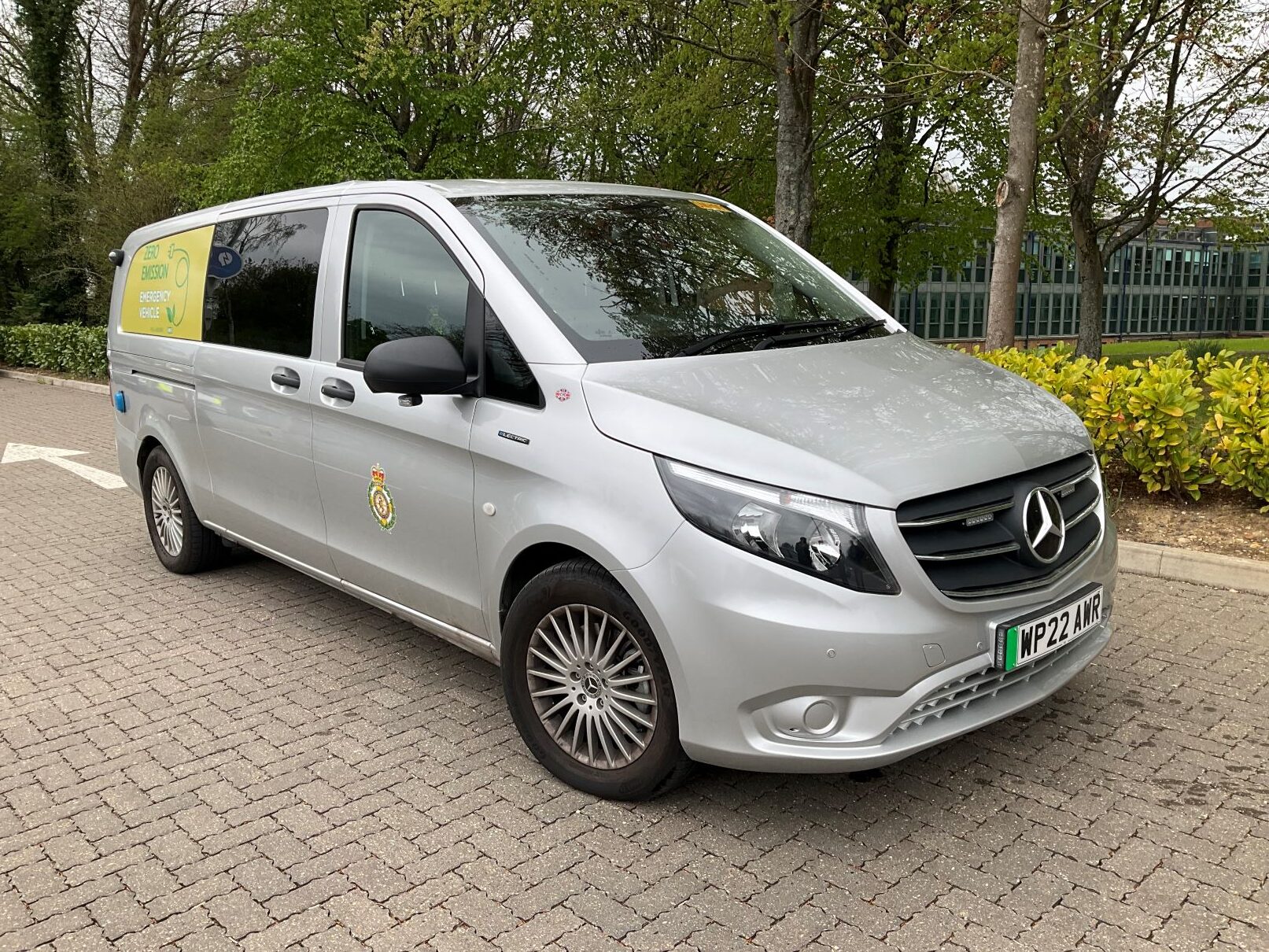A mental health crisis service developed in partnership between South Central Ambulance Service NHS Foundation Trust (SCAS), Southern Health NHS Foundation Trust and Hampshire & Isle of Wight Constabulary has taken delivery of its first electronic response vehicle.
The mental health crisis care service has been running for just over three years and sees a paramedic and mental health practitioner responding on blue lights to patients suffering an immediate mental health crisis including those who are about to be, or are at risk of being, detained by police for their own safety under Section 136 of the Mental Health Act.
The team had been using SCAS’ standard emergency response vehicles, but now this has now been upgraded to an all-electric Mercedes Benz eVito van which has been supplied and converted in partnership with the NHS England Zero Emissions Emergency Vehicle (ZEEV) Programme. It is one of only four electric mental health service vehicles operating in England.
Graeme Matthews, Crisis Care Liaison Lead at SCAS, said: “As an emergency response service, a significant amount of carbon emissions the Trust produces comes from its fossil-fuel powered vehicle fleet. The team and I are delighted that we now have a cleaner way of getting to patients who need us as quickly as possible, whilst still being able to deliver the most appropriate care and support for people in mental health crisis”.
Jenny Erwin, Mental Health, Learning Disabilities & Autism and Children’s Care Director at Hampshire & Isle of Wight Integrated Care Board, said: “The new electric vehicle marks another important development for the Hampshire mental health crisis service. It’s been a fantastic privilege to be involved in this transformation work which has seen people in a mental health crisis getting the same level of urgent and emergency care as those in a physical health crisis. Now that the blue light response also meets our NHS comment to net zero vehicles is further cause for celebration.”
With only four Section 136 suites in Hampshire, the mental health crisis care service ensures that patients at risk of being detained, or taken to a facility less suited to their needs (such as a hospital emergency department), can receive more appropriate care and assessment.
“On arrival to the patient the paramedic in the response vehicle will carry out a first assessment to rule out any physical injuries”, says Graeme. “In the absence of physical injuries, the mental health practitioner will then takeover, carrying out an assessment, review the patient’s care plan and arrange secondary care if needed. The rapid ‘see and treat’ service minimises the chances of the patient being taken somewhere less appropriate to their needs that could escalate the mental health crisis they are suffering.”
The mental health crisis service operates from 3pm to 2am every day and the team were despatched to 863 mental health emergency call outs in 2022.
The Mercedes eVito has an average WLTP combined range of 162 miles and, with a 35-minute rapid charge to 80%, it means with a short stop to recharge, the vehicle’s daily range can be extended to around 250 miles. Charging points for the eVito are at the Trust’s offices in Otterbourne – where the vehicle is parked when not operational – and can be accessed by staff using an app.
Ends

